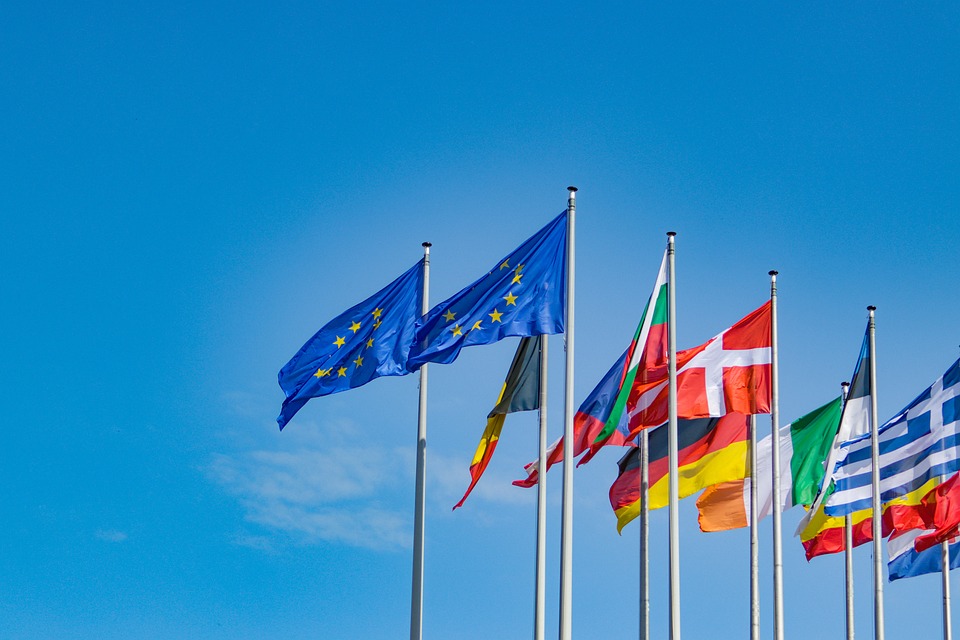The European Union has provided Finland with funds to set up a reserve to prepare the bloc for potential threats. The reserve comes amidst the ongoing war Russia is waging on Ukraine.
The Finnish government said on Tuesday that the EU has given $262 million to set up a reserve for all the bloc’s members to prepare for potential chemical, nuclear, and radiological threats. In a statement, the European Commissioner for Crisis Management Janez Lenarcic said Russia’s invasion of Ukraine highlighted the need to strengthen the bloc’s preparedness against such threats.
The Finnish interior ministry said the reserve would be made up of rescue equipment and medical supplies, including antidotes and radiation meters that aim to protect first responders and civilians. The reserve would be ready for use by 2024 and would dispatch supplies to a disaster or crisis in need within 12 hours of an offer for assistance being accepted.
“The stockpiles to be established in Finland will improve the European Union’s strategic preparedness and readiness to respond to different kinds of threats, especially in Northern Europe and the Baltic Sea Region,” said Finnish interior minister Krista Mikkonen.
Finland shares a 1,300-kilometer border with Russia and is located close to the Baltic countries that fear a potential escalation of the nearly 11-month-long war, such as the possible use of nuclear weapons by Russia or a nuclear accident.
Meanwhile, European Commission President Ursula von der Leyen said in remarks at the World Economic Forum in Davos that the bloc needs to work and trade with China on clean technology, saying that China has prioritized boosting clean technology innovation and manufacturing, leading in sectors such as electric vehicles and solar panels.
However, von der Leyen said that competition “must be based on a level-playing field” as China had been encouraging energy-focused companies to relocate to the country with promises of cheap energy, low labor costs, and lenient regulations. The EU chief added that China subsidizes its industry and restricts access to its market for EU companies.
“We will still need to work and trade with China – especially when it comes to this transition. So we need to focus on de-risking rather than decoupling,” said von der Leyen.



 Pentagon Ends Military Education Programs With Harvard University
Pentagon Ends Military Education Programs With Harvard University  Trump Backs Nexstar–Tegna Merger Amid Shifting U.S. Media Landscape
Trump Backs Nexstar–Tegna Merger Amid Shifting U.S. Media Landscape  Jack Lang Resigns as Head of Arab World Institute Amid Epstein Controversy
Jack Lang Resigns as Head of Arab World Institute Amid Epstein Controversy  Trump Endorses Japan’s Sanae Takaichi Ahead of Crucial Election Amid Market and China Tensions
Trump Endorses Japan’s Sanae Takaichi Ahead of Crucial Election Amid Market and China Tensions  Trump Allegedly Sought Airport, Penn Station Renaming in Exchange for Hudson River Tunnel Funding
Trump Allegedly Sought Airport, Penn Station Renaming in Exchange for Hudson River Tunnel Funding  U.S. Lawmakers to Review Unredacted Jeffrey Epstein DOJ Files Starting Monday
U.S. Lawmakers to Review Unredacted Jeffrey Epstein DOJ Files Starting Monday  China Warns US Arms Sales to Taiwan Could Disrupt Trump’s Planned Visit
China Warns US Arms Sales to Taiwan Could Disrupt Trump’s Planned Visit  New York Legalizes Medical Aid in Dying for Terminally Ill Patients
New York Legalizes Medical Aid in Dying for Terminally Ill Patients  Trump Allows Commercial Fishing in Protected New England Waters
Trump Allows Commercial Fishing in Protected New England Waters  US Pushes Ukraine-Russia Peace Talks Before Summer Amid Escalating Attacks
US Pushes Ukraine-Russia Peace Talks Before Summer Amid Escalating Attacks  Missouri Judge Dismisses Lawsuit Challenging Starbucks’ Diversity and Inclusion Policies
Missouri Judge Dismisses Lawsuit Challenging Starbucks’ Diversity and Inclusion Policies  U.S. to Begin Paying UN Dues as Financial Crisis Spurs Push for Reforms
U.S. to Begin Paying UN Dues as Financial Crisis Spurs Push for Reforms  Netanyahu to Meet Trump in Washington as Iran Nuclear Talks Intensify
Netanyahu to Meet Trump in Washington as Iran Nuclear Talks Intensify  Japan Election 2026: Sanae Takaichi Poised for Landslide Win Despite Record Snowfall
Japan Election 2026: Sanae Takaichi Poised for Landslide Win Despite Record Snowfall  Trump Signs “America First Arms Transfer Strategy” to Prioritize U.S. Weapons Sales
Trump Signs “America First Arms Transfer Strategy” to Prioritize U.S. Weapons Sales  Trump Says “Very Good Talks” Underway on Russia-Ukraine War as Peace Efforts Continue
Trump Says “Very Good Talks” Underway on Russia-Ukraine War as Peace Efforts Continue 































